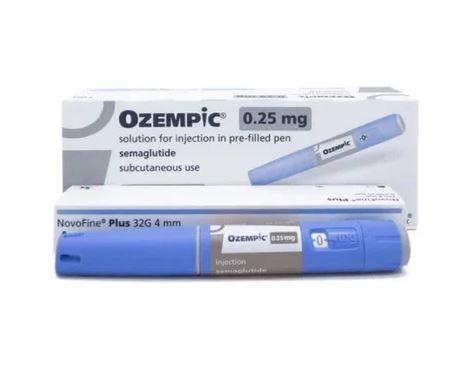How Long Does Alcohol Withdrawal Last?
Many people stop experiencing alcohol withdrawal symptoms four to five days after their last drink. Symptoms tend to be at their worst around the third day. If you decide to stop drinking daily and heavily, you will likely experience withdrawal symptoms. The time it takes to detox depends on a few factors, including how much you drink, how long you’ve been drinking, and whether you’ve already experienced alcohol withdrawal.
While not everyone has severe symptoms, others may develop life-threatening seizures or side effects. Because alcohol withdrawal can be deadly for some people who try to detox on their own without medical care, it’s crucial to talk to a healthcare professional who’s knowledgeable about alcohol detox before you stop drinking.
What is Alcohol Withdrawal Syndrome (AWS)?
Alcohol dependence and addiction are increasing and pervasive problems. The effects of alcohol withdrawal are a part of alcohol dependence syndrome and are commonly encountered in inpatient alcohol rehab settings. Alcohol withdrawal syndrome ranges from mild to severe. The severe, complicated effects of alcohol withdrawal may present with alcohol-induced psychosis, seizures, or delirium tremens, which can be life-threatening. [1]
Heavy drinkers who suddenly decrease their alcohol consumption or abstain completely may experience alcohol withdrawal (AW). These happen due to alcohol-induced imbalances in the brain, which result in excessive neuronal activity if the alcohol is withheld.
Alcohol dependence is associated with physiological symptoms, such as tolerance and withdrawal, and behavioral symptoms, such as impaired control over drinking. It usually manifests when an alcohol-dependent individual develops withdrawal symptoms after stopping alcohol due to family pressure, self-motivation, or difficulty procuring alcohol.

Skip To:
- How Long Does Alcohol Withdrawal Last?
- What is Alcohol Withdrawal Syndrome (AWS)?
- Alcohol Use Disorder Statistics
- How Long Does Withdrawal From Alcohol Last? Facts Sheet
- Signs of Alcohol Withdrawal
- Alcohol Withdrawal Symptoms
- Alcohol Withdrawal Timeline
- PAWS (Post-Acute Withdrawal Syndrome)
- What Happens During Alcohol Withdrawal & Detox?
- How Alcohol Detox Helps
- Alcohol Withdrawal Treatment
- 7 Most Popular How Long Does Alcohol Withdrawal Symptoms Last? Frequently Asked Questions
Learn More:
According to the National Center for Biotechnology Information (NCBI), [2] alcohol dependence is one of the most common psychiatric disorders, second only to major depression. Approximately 14% of the general population has a lifetime history of alcohol dependence. Alcohol Withdrawal Syndrome (AWS) is one of the most common presentations of Alcohol Dependence Syndrome. AWS is a cluster of symptoms that happens in alcohol-dependent people after cessation or reduction in heavy or prolonged alcohol use.
The clinical presentation varies from mild to severe, and symptoms’ onset typically occurs a few hours after the last alcohol intake. The most common manifestations are tremors, restlessness, insomnia, nightmares, paroxysmal sweats, tachycardia, fever, nausea, vomiting, seizures, hallucinations (auditory, visual, and tactile), increased agitation, and tremulousness. These symptoms involve disturbances in a wide range of neurotransmitter circuits implicated in the alcohol pathway and reflect a homeostatic readjustment of the central nervous system (CNS).
Alcohol Use Disorder Statistics
According to the 2019 NSDUH, 14.5 million (nearly 15 million) people ages 12 and older (5.3% of this age group) had alcohol use disorder or AUD. This number includes 9.0 million men (6.8% of men in this age group) and 5.5 million women (3.9% of women in this age group) [2]
85.6%
85.6% of people ages 18 and older reported drinking alcohol at some point in their lifetime.
Source: NIAAA
95,000
An estimated 95,000 people (approximately 68,000 men and 27,000 women) die from alcohol-related causes annually, making alcohol the third-leading preventable cause of death in the United States.
Source: NIAAA
140,000
Excessive alcohol use was responsible for more than 140,000 deaths in the United States each year from 2015 to 2019, or more than 380 deaths per day.
Source: NIAAA
How Long Does Withdrawal From Alcohol Last?
Facts Sheet
Alcohol withdrawal symptoms will generally peak within 24-72 hours after your last drink and resolve within 4-5 days. The severity and duration of withdrawal symptoms are impacted by several factors, including:
- How many years have you drank
- How much alcohol you consume when you did drink
- How often you drank
- Any co-occurring physical or mental health conditions
- If you struggle with other substances
Detox and withdrawal typically take 2 to 7 days and are done in a hospital or inpatient treatment center.
As withdrawal ends, people need to continue to seek treatment. This can look like regular therapy with a licensed mental health professional, 12-step programs, support groups, and other community resources. Some options for support groups include Smart Recovery, Alcoholics Anonymous, Sober Mom Squad, and The Luckiest Club. It also includes the understanding that recovery is a lifelong process for some. Taking care of yourself physically and emotionally is a lifestyle decision.

Get Your Life Back
Find Hope & Recovery. Get Safe Comfortable Detox, Addiction Rehab & Mental Health Dual Diagnosis High-Quality Care at the We Level Up Treatment Centers Network.
Hotline (877) 378-4154Signs of Alcohol Withdrawal
Alcohol withdrawal can encompass many signs and symptoms. But what are the first signs of alcohol withdrawal a person may experience?
Craving for a Drink
A period of daily drinking over multiple days can eventually produce alcohol dependence. When the body becomes dependent on alcohol, the brain sends messages encouraging the person to continue drinking to satisfy the dependence. One of these messages may be: “I need a drink,” “I want a drink,” “I could use a drink,” or “It’s time for a drink.” The thought enters the mind. If the person takes a drink, then the thought leaves them. If the person postpones the drink, then the thought will get stronger.
Tremors
Fine hand tremors. This is a classic and often troubling symptom of alcohol withdrawal and one of the first signs of alcohol withdrawal. The person dependent on alcohol notices a fine tremor in their hands. The tremor is most noticeable when holding objects such as drinking glasses or toothbrushes. Hand tremors often occur upon awakening due to the time between the last drink and time spent in bed. The dependent person may require alcohol to stop the hand tremor.
Alcohol Withdrawal Symptoms
The symptoms of alcohol withdrawal relate proportionately to the level of alcohol intake and the duration of the person’s recent drinking habit. Not everyone who quits drinking alcohol experiences withdrawal symptoms, but many people who have been drinking for an extended period, drink frequently, or drink heavily, will experience withdrawal symptoms if they stop using alcohol suddenly. There are several mild to moderate psychological and physical symptoms you might experience when you stop drinking.
Psychological Symptoms
- Anxiety
- Bad dreams
- Depression
- Difficulty thinking clearly
- Fatigue
- Feeling jumpy or nervous
- Irritability or becoming excited easily
- Rapid mood swings
- Shakiness
Physical Symptoms
- Clammy skin
- Elevated blood pressure
- Headache
- Alcohol-induced Insomnia
- Loss of appetite
- Nausea and vomiting
- Paleness
- Rapid heart rate or palpitations
- Sweating, especially on the palms of your hands or your face
- A tremor in your hands
Severe symptoms are potentially much more dangerous and are deserving of in-depth description:
Delirium tremens (DTs): “DTs are much more serious than the “alcohol shakes”—5% of patients who experience DTs die from metabolic complications. DTs, which present within 2 to 4 days of the last drink (and can last up to 3 to 4 days), The symptoms of delirium tremens include:
- Agitation
- Confusion (which can be severe)
- Dangerous changes in blood pressure
- Excessive sweating
- Fever
- Hallucinations
- Heart arrhythmia (irregular heartbeat)
- Rapid changes in mood
- Seizures
- Sensitivity to touch, light, and/or sound
- Tremors
The symptoms of DT may get rapidly worse and can be fatal. A person with delirium tremens needs to be hospitalized until the symptoms can be controlled.
Seizures: Grand mal seizures can occur in up to 25% of alcoholics undergoing withdrawal. If alcohol-related seizures occur, they generally do so within 1 day of cessation of alcohol intake but can occur up to 5 days later.

Get Help. Get Better. Get Your Life Back.
Searching for Accredited Drug & Alcohol Rehab Centers Near You? Or Mental Health Support?
Even if you have failed previously, relapsed, or are in a difficult crisis, we stand ready to support you. Our trusted behavioral health specialists will not give up on you. Call us when you feel ready or want someone to speak to about therapy alternatives to change your life. Even if we cannot assist you, we will lead you wherever you can get support. There is no obligation. Call our hotline today.
FREE Addiction Hotline – Call 24/7Alcohol Withdrawal Timeline
The timeline of withdrawal from alcohol begins as soon as the level of alcohol in the blood comes down, and the effects of intoxication begin to wear off. Alcohol withdrawal symptoms can appear as early as 2 hours after having the last drink. Alcohol withdrawal symptoms usually show up in various stages. The following is the timeline for the common symptoms of alcohol withdrawal:
6 Hours
Minor withdrawal symptoms usually begin about six hours after your last drink. A person with a long history of heavy drinking could have seizures six hours after stopping drinking. These first symptoms of withdrawal include the following:
- Decreased appetite
- Headache
- Heart palpitations
- Insomnia
- Mild or moderate anxiety
- Shaking
- Upset stomach

12 to 24 Hours
A small percentage of people going through alcohol withdrawal have hallucinations at this point. They may hear or see things that aren’t there. While this symptom can be scary, doctors don’t consider it a severe complication.
This stage of alcohol withdrawal includes the previous symptoms plus the following moderate symptoms:
- Confusion
- Excessive sweating
- Fast heart rate (more than 100 beats per minute)
- Fever
- Increased systolic blood pressure
- Mild tremor
- Moderate anxiety
- Rapid, shallow breathing
24 to 48 Hours
Minor withdrawal symptoms usually continue during this time. These symptoms may include headache, tremors, and stomach upset. If a person goes through only minor withdrawal, their symptoms usually peak at 18 to 24 hours and decrease after four to five days.
48 hours to 72 Hours
Some people experience a severe form of alcohol withdrawal that doctors call delirium tremens (DTs) or alcohol withdrawal delirium. A person with this condition can have a very high heart rate, seizures, or a high body temperature.
72 Hours
This is the time when alcohol withdrawal symptoms are usually at their worst. In rare cases, moderate withdrawal symptoms can last for a month. These include rapid heart rate and alcohol-induced psychosis (seeing things that aren’t there).
First-class Facilities & Amenities
World-class High-Quality Addiction & Mental Health Rehabilitation Treatment
Rehab Centers TourRenowned Addiction Centers. Serene Private Facilities. Inpatient rehab programs vary.
Addiction Helpline (877) 378-4154Proven recovery success experience, backed by a Team w/ History of:
15+
Years of Unified Experience
100s
5-Star Reviews Across Our Centers
10K
Recovery Success Stories Across Our Network
- Low Patient to Therapist Ratio
- Onsite Medical Detox Center
- Comprehensive Dual-Diagnosis Treatment
- Complimentary Family & Alumni Programs
- Coaching, Recovery & Personal Development Events
PAWS (Post-Acute Withdrawal Syndrome)
PAWS (Post-Acute Withdrawal Syndrome) refers to the long-term side effect of alcohol abuse, potentially challenging and affecting a person’s life. Symptoms might continue years after withdrawal and initial detox. That is why it is highly recommended to continue treatment after the initial seven-day detox.
These symptoms include:
- Hostility
- Irritability
- Anxiety & Depression
- Mood swings
- Low levels of energy
- Fatigue
- Insomnia
- Inability to focus
- Lack of sex drive
- Chronic pain
These symptoms are mainly psychological and have been known to continue for months or years after alcohol cessation. They tend to ‘come and go in waves or episodes and can be triggered by specific circumstances, memories, smells, or people.
What Happens During Alcohol Withdrawal & Detox?
Detox is a safe, medically supervised setting where someone can safely detox from alcohol and other substances while getting the medical treatment needed to guarantee the most comfortable detox experience possible. The staff will provide 24/7 care and supervision while the body, especially the liver, clears itself from alcohol. They will also be ready and able to intervene in the event of a severe medical emergency as a result of alcohol withdrawal.
As the person enters detox, he or she will undergo a professional medical evaluation. Here, a medical professional will assess the severity of the alcohol withdrawal symptoms in addition to the physical and mental health. Professionals will work closely with the client to develop an individualized detox plan to meet the client’s needs effectively.
The whole body, including the liver, will start detoxing. The liver was at the focus of attention when a person is drinking, as it filters and processes the fluids ingested during the day. This means the liver will start detoxing once alcohol consumption is stopped.
How Alcohol Detox Helps
The alcohol detox stage is the first step in alcoholism treatment. During this time, alcohol is completely flushed from your body. How long does alcohol withdrawal last during detox? Withdrawal symptoms typically subside within approximately 1-2 weeks after starting the detox. However, this could take longer, depending on the severity of your alcohol use disorder. From there, you can focus on other aspects of the recovery process, such as different activities, therapies, counseling sessions, and support options.
Some people are apprehensive about quitting drinking because they’re nervous about the withdrawal symptoms experienced during alcohol detox. While some people may only be affected by the minor effects of alcoholism, others may face extreme pain. Withdrawal symptoms can change quickly and aggressively, which is why it’s important to detox under the care of medical professionals. Treatment professionals at a rehab facility can help you manage your pain with different medications. This allows you to focus on your recovery and get better.
World-class, Accredited, 5-Star Reviewed, Effective Addiction & Mental Health Programs. Complete Behavioral Health Inpatient Rehab, Detox plus Co-occuring Disorders Therapy.
CALL (877) 378-4154End the Addiction Pain. End the Emotional Rollercoaster. Get Your Life Back. Start Drug, Alcohol & Dual Diagnosis Mental Health Treatment Now. Get Free No-obligation Guidance by Substance Abuse Specialists Who Understand Addiction & Mental Health Recovery & Know How to Help.
Alcohol Withdrawal Treatment
Medically-assisted Detox
Alcohol detox is often considered the first stage of treatment. It will help you navigate the complicated process of alcohol withdrawal but doesn’t address patterns of thought and behavior that contribute to alcohol use. Various treatment approaches and settings can help provide the ongoing support necessary to maintain long-term sobriety after you complete detox.
Cravings are very common during detox and can be challenging to overcome. This often leads to relapse. Constant medical care provided during inpatient treatment helps prevent relapse. Clinicians can provide the necessary medication and medical expertise to lessen cravings and the effects of alcohol withdrawals.
Medication-Assisted Treatments
Medication-Assisted Treatments (MAT) for alcohol use and mental health disorders are commonly used in conjunction with one another. This includes the use of medications and other medical procedures. During your rehab, the staff from your treatment facility will help you identify what caused your addiction and teach you skills that will help you change your behavior patterns and challenge the negative thoughts that led to your addiction. Sometimes, the pressures and problems in your life lead you to rely on substances to help you forget about them momentarily.
Integrated Mental Health Care
Alcohol affects mental health, so people may use it to self-medicate for undiagnosed disorders. Rehab centers typically provide mental health screenings, diagnoses, and integrated treatment for co-occurring disorders. Furthermore, holistic and therapeutic approaches are often used to treat recovering alcoholics with these conditions.
Behavioral Therapies
Cognitive Behavioral Therapy (CBT) and Dialectical Behavioral Therapy (DBT) can improve alcoholics’ behavior. CBT targets negative and maladaptive thought patterns as it promotes positive emotions and beliefs, while DBT helps clients address conflicting impulses to make healthy choices. Both therapies treat alcohol abuse and mental health disorders. Therapy also empowers clients to identify, avoid and mitigate cues that trigger alcohol cravings.
Individual and Group Counseling
Addiction and mental health counseling occur in both individual and group settings. One-on-one treatment sessions may address unresolved trauma, unconscious conflicts, and specific struggles, while group sessions often involve training in life skills, stress management, conflict resolution, and social connections. Group counseling also allows clients to share their thoughts and experiences to develop social support, which is essential for lasting recovery.
“How long alcohol withdrwal last?” is a question that many misusers of alcohol may have. Talk to one of our addiction specialists if you have apprehensions about quitting drinking because you’re nervous. Please, do not try to detox on your own because the detox process can be painful and difficult without medical assistance. If you or someone you know regularly exceeds these recommended daily limits or is experiencing the effects of alcohol withdrawal, it is crucial to intervene early. We Level Up NJ has addiction specialists that are standing by to help.

Experience Transformative Recovery at the We Level Up Treatment Center.
See our authentic success stories. Get inspired. Get the help you deserve.



Start a New Life
Begin with a free call to an addiction & behavioral health treatment advisor. Learn more about our dual-diagnosis programs. The We Level Up treatment center network delivers various recovery programs at each treatment facility. Call to learn more.
- Personalized Care
- Caring Accountable Staff
- World-class Amenities
- Licensed & Accredited
- Renowned w/ 5-Star Reviews
We’ll Call You
7 Most Popular How Long Does Alcohol Withdrawal Symptoms Last? Frequently Asked Questions
-
How long does alcohol withdrawal delirium last?
Delirium tremens presents commonly on the third to fifth day after alcohol abstinence and lasts about 24 hours to 6 days, but in the rare instance, the condition can last for weeks. To determine alcohol withdrawal delirium, how long does it last, and the timeline, know that it has a mortality rate of about 1% to 15%. So before looking for the answers to detox on your own, seek help immediately if you’re having alcohol withdrawal symptoms.
-
How long does mild alcohol withdrawal last?
Many people stop experiencing alcohol withdrawal symptoms four to five days after their last drink. But this case is mainly for mild withdrawals. It could last longer and have fatal symptoms when your condition is severe.
-
How long does shaking from alcohol withdrawal last?
Tremors may begin 5-10 hours after the last drink. That’s why some who regularly drink large amounts of alcohol wake up with the shakes and need a drink to “feel steady.” Tremors typically peak 24 to 78 hours after the last drink but may last for several weeks or longer.
-
How long does diarrhea last from alcohol withdrawal?
Diarrhea is one of the first symptoms a person in detox will experience, typically starting within the first 12 hours and lasting up to 48 hours.
-
How long does alcohol withdrawal tinnitus last?
Those who have alcohol withdrawal-related tinnitus will usually find that things will improve after a short period. In some cases, it might not be possible to establish or treat the cause of tinnitus. The focus then will turn to managing the symptoms.
-
How long does alcohol withdrawal anxiety last?
It takes at least two weeks for the brain to start returning to normal, so this is the point at which the alcohol recovery timeline begins. Until the brain recovers, it cannot suppress the urge to drink. This is because alcohol has impaired the brain’s cognitive ability and may cause anxiety symptoms and cravings.
-
How long does alcohol withdrawal symptoms last?
The total time for alcohol withdrawal symptoms will vary depending on the severity of alcohol addiction, underlying health conditions, and more.
Search We Level Up NJ How Long Does Alcohol Withdrawal Last? Topics & Resources
Sources
- Attilia F, Perciballi R, Rotondo C, Capriglione I, Iannuzzi S, Attilia ML, Coriale G, Vitali M, Cereatti F, Fiore M, Ceccanti M; Interdisciplinary Study Group CRARL – SITAC – SIPaD – SITD – SIPDip. How Long Does Alcohol Withdrawal Last? Alcohol withdrawal syndrome: diagnostic and therapeutic methods. Riv Psychiatr. 2018 May-Jun;53(3):118-122. DOI: 10.1708/2925.29413. PMID: 29912213.
- Alcohol Use in the United States – NIAAA/National Institute on Alcohol Abuse and Alcoholism
- Nehring SM, Freeman AM. Alcohol Use Disorder. [Updated 2022 Jul 31]. In: StatPearls [Internet]. Treasure Island (FL): StatPearls Publishing; 2022 Jan-. Available from: https://www.ncbi.nlm.nih.gov/books/NBK436003/
- Kranzler HR, Soyka M. Diagnosis and Pharmacotherapy of Alcohol Use Disorder: A Review. JAMA. 2018 Aug 28;320(8):815-824. DOI: 10.1001/jama.2018.11406. PMID: 30167705; PMCID: PMC7391072.
- Rehm J. The risks associated with alcohol use and alcoholism. Alcohol Res Health. 2011;34(2):135-43. PMID: 22330211; PMCID: PMC3307043.
- LaHood AJ, Kok SJ. Ethanol Toxicity. How Long Does Alcohol Withdrawal Last? [Updated 2022 Mar 18]. In: StatPearls [Internet]. Treasure Island (FL): StatPearls Publishing; 2022 Jan-. Available from: https://www.ncbi.nlm.nih.gov/books/NBK557381/
- Jung YC, Namkoong K. Alcohol: intoxication and poisoning – diagnosis and treatment. Handb Clin Neurol. 2014;125:115-21. DOI: 10.1016/B978-0-444-62619-6.00007-0. PMID: 25307571.
- Newman RK, Stobart Gallagher MA, Gomez AE. Alcohol Withdrawal. [Updated 2022 Aug 29]. In: StatPearls [Internet]. Treasure Island (FL): StatPearls Publishing; 2022 Jan-. Available from: https://www.ncbi.nlm.nih.gov/books/NBK441882/
- Huebner RB, Kantor LW. Advances in alcoholism treatment. Alcohol Res Health. 2011;33(4):295-9. PMID: 23580014; PMCID: PMC3860532.
- Witkiewitz K, Litten RZ, Leggio L. Advances in the science and treatment of alcohol use disorder. Sci Adv. 2019 Sep 25;5(9):eaax4043. DOI: 10.1126/sciadv.aax4043. PMID: 31579824; PMCID: PMC6760932.





